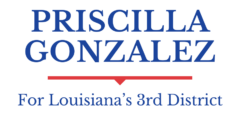The Mental Health Matters Act (H.R. 7780) aims to enhance access to mental and behavioral health care in the United States through a series of federal actions and provisions. Key components of the bill include:
- Expansion of School-Based Mental Health Services: The act creates grants to increase the number of mental health service providers in schools, addressing the mental health needs of students and youth (Congress.gov) (ProPublica).
- Support for Higher Education Institutions: It establishes requirements for institutions of higher education to develop policies to support students with disabilities, ensuring they have access to necessary mental health services (ProPublica).
- Prohibition of Arbitration Clauses: The bill prohibits arbitration and discretionary clauses in employer-sponsored benefit plans, aiming to improve access to mental health and substance use disorder benefits for employees (ProPublica).
- Grant Programs and Best Practices: The legislation directs the Department of Health and Human Services to identify and promote interventions, best practices, and curricula that improve the social-emotional and behavioral health of children (Congress.gov).
When Congressman Clay Higgins voted against the Mental Health Matters Act (H.R. 7780), it had several potential implications for citizens, particularly those in his district and across the nation. Here’s a detailed look at how this vote might affect various aspects of mental health care and support:
- School-Based Mental Health Services:
- Impact on Students: By voting against the bill, Higgins opposed the allocation of federal grants aimed at increasing the number of mental health service providers in schools. This could limit the availability of crucial mental health resources for students. In districts with high needs, this may result in insufficient support for students dealing with mental health issues, potentially affecting their academic performance and overall well-being (ProPublica).
- Impact on Schools: Schools might continue to face challenges in addressing the mental health needs of their students without additional funding and support. This can strain existing resources and staff, making it difficult to provide comprehensive care.
- Support for Higher Education:
- Impact on College Students with Disabilities: The bill included provisions to support mental health services for students with disabilities in higher education institutions. Voting against it means rejecting measures that could help colleges develop better support systems for these students. This could result in continued gaps in services, potentially affecting their academic success and mental health outcomes (ProPublica).
- Employee Benefits:
- Impact on Workers: The bill proposed prohibiting arbitration and discretionary clauses in employer-sponsored benefit plans, which would make it easier for employees to access mental health and substance use disorder benefits. Voting against the bill maintains the status quo, where such clauses can limit employees’ ability to receive fair mental health care coverage and dispute resolution (ProPublica).
- Legal and Financial Barriers: Employees might continue to face legal and financial barriers when seeking mental health services, as these clauses often favor employers and insurers in disputes over coverage.
- Community and Public Health:
- Broad Community Impact: Access to mental health care is a significant public health issue. Voting against the bill means potentially fewer resources and less federal support for community-based mental health initiatives. This can affect the overall mental health of the community, leading to higher rates of untreated mental health conditions and related social issues (Congress.gov).
- Long-Term Costs: Insufficient mental health care can lead to higher long-term costs for society, including increased healthcare costs due to untreated conditions, higher rates of unemployment, and greater burdens on social services.
- Political and Social Implications:
- Perception of Priorities: Voting against a bill focused on improving mental health services might influence constituents’ perceptions of Higgins’ priorities, potentially affecting his political support. Voters who prioritize mental health care might view this vote as a lack of support for critical health issues.
- Advocacy and Response: Mental health advocacy groups and affected individuals might respond with increased advocacy efforts to push for similar or alternative legislation to address these needs.
Clay Higgins’ startling vote against the Mental Health Matters Act is a major blow to the fight to improve and broaden mental health care in many important areas. This contentious choice puts several people in danger of being left unsupported and vulnerable by undermining important programs meant to help the mental health of staff, students, and the community at large. This vote might have far-reaching effects and jeopardize the advancements in mental health accessibility and awareness that advocates have worked so hard to accomplish. With the nation’s mental health crisis getting worse, Higgins’s position might make things worse for people who really need help. Our society’s health is in jeopardy because of a single vote that has the potential to undo years of hard work to protect mental health for all.
